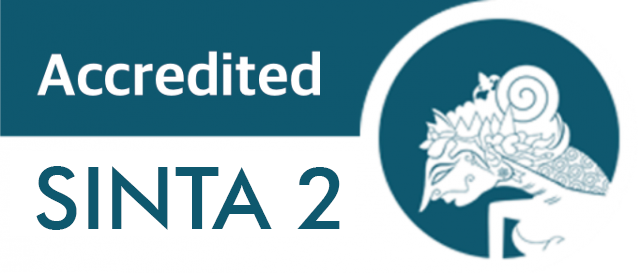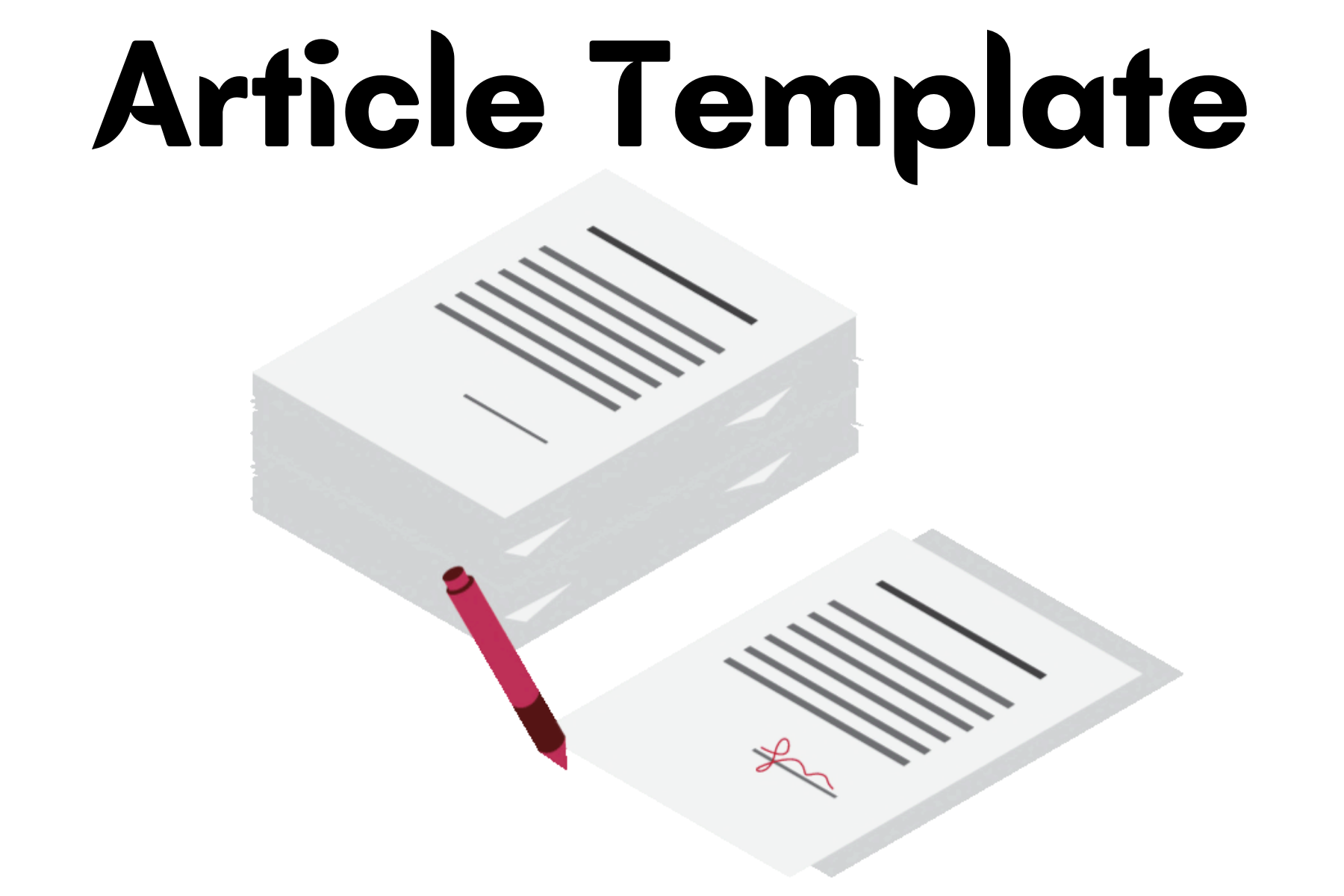Exploring The Impact of Self-Regulated Learning on Reducing Students' Mathematics Anxiety
Kata Kunci:
self-regulated learning, mathematics anxiety, Literature reviewAbstrak
The study of mathematics often presents challenges due to anxiety, which can adversely affect students' understanding and performance. Research on self-regulated learning has received increasing attention as a strategy to address this issue. This article presents a comprehensive literature review to explore the relationship between self-regulated learning and anxiety in mathematics. Using the PRISMA procedure, 28 studies were selected from 2018 to 2024 to explore the relationship between self-regulated learning and math anxiety grouped by level of research, methodology, sample, and instruments used. The review showed that stronger levels of self-regulated learning were associated with lower levels of math anxiety, while lower levels of self-regulated learning were associated with higher math anxiety. These findings provide valuable insights for educators and researchers in developing strategies to increase self-regulated learning and reduce students' math-related anxiety. Understanding these relationships makes it possible to design more targeted interventions to improve teaching practices as well as student learning outcomes in mathematics.
Referensi
Andres, J. M. A. L., Baker, R. S., Hutt, S. J., Mills, C., Zhang, J., Rhodes, S., & Allison DePiro, cuethinkcom. (2023). Anxiety, Achievement, and Self-Regulated Learning in CueThink. International Society of the Learning Sciences, 258–265.
Atsnan, Muh. F., Gazali, R. Y., & Nareki, M. L. (2018). Pengaruh pendekatan problem solving terhadap kemampuan representasi dan literasi matematis siswa. Jurnal Riset Pendidikan Matematika, 5(2), 135–146. https://doi.org/10.21831/jrpm.v5i2.20120
Balali, M., Sadeghi, J., & Homayouni, A. (2023). The Intermediating Role of Self-Regulation in the Relationship between Math Educational Beliefs and Students’ Math Anxiety. Iranian Journal of Learning and Memory, 6(21), 60–67. https://doi.org/10.22034/iepa.2023.170857
Cahyawati, D., Delima, N., & Gunarto, M. (2023). The impact of undergraduate students’ mathematics anxiety and self-concept on their self-regulated learning and academic achievement. Jurnal Elemen, 9(1), 183–196. https://doi.org/10.29408/jel.v9i1.6898
Delima, N., & Cahyawati, D. (2021). Students’ Mathematics Self-Concept, Mathematics Anxiety, and Mathematics Self-Regulated Learning during the Covid-19 Pandemic. Jurnal Pendidikan Matematika, 15(2), 103–114. https://doi.org/10.22342/jpm.15.2.13200.103-114
Delima, N., Kusuma, D. A., & Paulus, E. (2024). The students’ mathematics self-regulated learning and mathematics anxiety based on the use of chat GPT, music, study program, and academic achievement. Infinity Journal, 13(2), 349–362. https://doi.org/10.22460/infinity.v13i2.p349-362
Dirgantoro, K. P. S., & Soesanto, R. H. (2021). Analysis of Self-Regulated Learning of Students in Mathematics Education Study Program in Number Theory Course. JIPM (Jurnal Ilmiah Pendidikan Matematika), 10(1), 39. https://doi.org/10.25273/jipm.v10i1.7812
Dowker, A., Sarkar, A., & Looi, C. Y. (2016). Mathematics anxiety: What have we learned in 60 years? In Frontiers in Psychology (Vol. 7, Issue APR). Frontiers Media S.A. https://doi.org/10.3389/fpsyg.2016.00508
Duru, D. C., & Okeke, S. O. C. (2021). Self-regulated learning skill as a predictor of mathematics achievement: a focus on ability levels. Malikussaleh Journal of Mathematics Learning (MJML), 4(2), 86. https://doi.org/10.29103/mjml.v4i2.5708
El-Adl, A., & Alkharusi, H. (2020). Relationships between self-regulated learning strategies, learning motivation and mathematics achievement. Cypriot Journal of Educational Sciences, 15(1), 104–111. https://doi.org/10.18844/cjes.v15i1.4461
Erita, S., Pramesty, E. A., & Putra, A. (2022). Flipped Classroom Effect on Students’ Self-Regulated Learning. Edumatika : Jurnal Riset Pendidikan Matematika, 5(2). https://doi.org/10.32939/ejrpm.v5i2.1337
Fajri, F. R., & Amir, M. F. (2022). Math self-regulated learning assisted by metacognitive support by reviewing sex differences in mathematics anxiety. REID (Research and Evaluation in Education), 8(2), 100–113. https://doi.org/10.21831/reid.v8i2.49157
Fauzi, A., & Pradipta, I. W. (2018). Research methods and data analysis techniques in education articles published by Indonesian biology educational journals. JPBI (Jurnal Pendidikan Biologi Indonesia), 4(2), 123–134. https://doi.org/10.22219/jpbi.v4i2.5889
Gabriel, F., Buckley, S., & Barthakur, A. (2020). The impact of mathematics anxiety on self-regulated learning and mathematical literacy. Australian Journal of Education, 64(3), 227–242. https://doi.org/10.1177/0004944120947881
ًِGhahremani, P., Monirpour, N., & Zargham Hajebi, Majid. (2022). Presenting a Model of Relationships between Classroom Perception, Self-regulation, Students and Math Anxiety in High School Students. Journal Of Sociology Of Education, 7(2), 320–333. https://sid.ir/paper/1062762/en
Gonzalez-DeHass, & Alyssa R. (2020). Parent involvement for motivated learners: Encouraging self-directed and resilient students.
Guo, J., Parker, P. D., Marsh, H. W., & Morin, A. J. S. (2015). Supplemental Material for Achievement, Motivation, and Educational Choices: A Longitudinal Study of Expectancy and Value Using a Multiplicative Perspective. Developmental Psychology. https://doi.org/10.1037/a0039440.supp
Gürsel, G., Dikkartin Övez, F. T., & Öztürk, G. (2023). High school students’ level of mathematics anxiety and use of self-regulatory learning strategies. Acta Didactica Napocensia, 16(1), 170–181. https://doi.org/10.24193/adn.16.1.12
Herawati, M., Muhid, A., & Hamdani, A. S. (2021). Self-Efficacy, Social Support, Academic Flow, and Math Anxiety among Islamic Senior High School Students. Psympathic : Jurnal Ilmiah Psikologi, 7(2), 315–326. https://doi.org/10.15575/psy.v7i2.8474
Hurst, M., & Cordes, S. (2017). When Being Good at Math Is Not Enough: How Students’ Beliefs About the Nature of Mathematics Impact Decisions to Pursue Optional Math Education. In Understanding Emotions in Mathematical Thinking and Learning (pp. 221–241). Elsevier Inc. https://doi.org/10.1016/B978-0-12-802218-4.00008-X
Hutt, S., Ocumpaugh, J., Andres, J. Ma. A. L., Munshi, A., Bosch, N., Baker, R. S., Zhang, Y., Paquette, L., Slater, S., & Biswas, G. (2021). Who’s Stopping You? – Using Microanalysis to Explore the Impact of Science Anxiety on Self-Regulated Learning Operations. UC Merced Proceedings of the Annual Meeting of the Cognitive Science Society, 43, 1409–1415. https://escholarship.org/uc/item/36s0d7bv
Karakose, T., Polat, H., Yirci, R., Tülübaş, T., Papadakis, S., Ozdemir, T. Y., & Demirkol, M. (2023). Assessment of the relationships between prospective mathematics teachers’ classroom management anxiety, academic self-efficacy beliefs, academic amotivation and attitudes toward the teaching profession using structural equation modelling. Mathematics, 11(2), 449.
Kesici, Ý., & Erdoan, A. (2009). Predicting College Students’ Mathematics Anxiety By Motivational Beliefs And Self-Regulated Learning Strategies. College Student Journal.
Khasawneh, E., Gosling, C., & Williams, B. (2021). What impact does maths anxiety have on university students? In BMC Psychology (Vol. 9, Issue 1). BioMed Central Ltd. https://doi.org/10.1186/s40359-021-00537-2
Latifah, L., & Ritonga, I. (2020). Systematic Literature Review (SLR): Kompetensi Sumber Daya Insani Bagi Perkembangan Perbankan Syariah di Indonesia. Al Maal: Journal of Islamic Economics and Banking, 2(1), 63. https://doi.org/10.31000/almaal.v2i1.2763
Marticion, J. A. (2021). Mathematical Anxiety as Predictor of Learning Motivation Strategies. In Southeast Asian Mathematics Education Journal (Vol. 11, Issue 1).
Musso, M. F., Boekaerts, M., Segers, M., & Cascallar, E. C. (2019). Individual differences in basic cognitive processes and self-regulated learning: Their interaction effects on math performance. Learning and Individual Differences, 71, 58–70. https://doi.org/10.1016/j.lindif.2019.03.003
Page, M. J., McKenzie, J. E., Bossuyt, P. M., Boutron, I., Hoffmann, T. C., Mulrow, C. D., Shamseer, L., Tetzlaff, J. M., Akl, E. A., Brennan, S. E., Chou, R., Glanville, J., Grimshaw, J. M., Hróbjartsson, A., Lalu, M. M., Li, T., Loder, E. W., Mayo-Wilson, E., McDonald, S., … Moher, D. (2021). The PRISMA 2020 statement: an updated guideline for reporting systematic reviews. In The BMJ (Vol. 372). BMJ Publishing Group. https://doi.org/10.1136/bmj.n71
Priharvian, S. M., Diana, S. P., & Dewanti, S. S. (2024). Multiple regression analysis: effects of math anxiety and self-regulated learning on learning outcomes. Jurnal Pengembangan Pembelajaran Matematika, 6(1), 53–62. https://doi.org/10.14421/jppm.2024.61.53-62
Ramirez, G., Hooper, S. Y., Kersting, N. B., Ferguson, R., & Yeager, D. (2018). Teacher Math Anxiety Relates to Adolescent Students’ Math Achievement. AERA Open, 4(1). https://doi.org/10.1177/2332858418756052
Rayoan, F. M., & Ludji, R. A. D. (2021). The Influence of Mathematics National Examination Scores on Grade Point Average, Mathematics Anxiety, and Self-Regulated Learning of 2018 Second Year Students. Pancaran Pendidikan, 10(2). https://doi.org/10.25037/pancaran.v10i2.334
Rican, J., Chytrý, V., & Medova, J. (2022). Aspects of self-regulated learning and their influence on the mathematics achievement of fifth graders in the context of four different proclaimed curricula. Front. Psychol., 1–15. https://doi.org/10.3389/fpsyg.2022.963151
Roick, J., & Ringeisen, T. (2018). Students’ math performance in higher education: Examining the role of self-regulated learning and self-efficacy. Learning and Individual Differences, 65, 148–158. https://doi.org/10.1016/j.lindif.2018.05.018
Rozgonjuk, D., Kraav, T., Mikkor, K., Orav-Puurand, K., & Täht, K. (2020). Mathematics anxiety among STEM and social sciences students: the roles of mathematics self-efficacy, and deep and surface approach to learning. International Journal of STEM Education, 7(1). https://doi.org/10.1186/s40594-020-00246-z
Singh, P., Abd Moin, M. A. A. B., Veloo, P. K., Han, C. T., & Hoon, T. S. (2019). The relationship between self-regulated learning and mathematics attitude towards college students' development of mathematical thinking. Universal Journal of Educational Research, 7(10 D), 48–53. https://doi.org/10.13189/ujer.2019.071709
Siregar, R. N., Suryadi, D., Prabawanto, S., & Mujib, A. (2023). Increasing Students Self-Regulated Learning Through A Realistic Mathematical Education. AKSIOMA: Jurnal Program Studi Pendidikan Matematika, 12(1), 1197. https://doi.org/10.24127/ajpm.v12i1.6748
Taranto, D., & Buchanan, M. T. (2020). Sustaining Lifelong Learning: A Self-Regulated Learning (SRL) Approach. Discourse and Communication for Sustainable Education, 11(1), 5–15. https://doi.org/10.2478/dcse-2020-0002
Tashtoush, M. A., Al-Shannaq, M. M., & Al-Barakat, A. A. (2020). The Effect of Using Self-Regulated Learning Learning Strategy to Reduce the Level of Mathematics Anxiety among Students of Al-Huson University College. Jordanian Educational Journal, 5(3), 306–329. https://www.researchgate.net/publication/347441525
Tashtoush, M., Alshunaq, M., & Albarakat, A. (2022). The Effectiveness of Self-Regulated Learning (SLR) in Creative Thinking for CALCULUS Students-Palarch’s. Journal Of Archaeology Of Egypt/Egyptology, 17(7).
Thamrin, T., Akbar, M., & Tola, B. (2018, March 25). Self-efficacy, academic anxiety, and self-regulated learning on mathematics achievement at vocational high school. CITES. https://doi.org/10.4108/eai.21-11-2018.2282033
Vahidi, S., Tavakoli, M. H., Tavakoli, M. A., & Nezhad Author Address, S. (2018). The role of executive functions and self-regulation learning levels in predicting math anxiety. MEJDS, 8(64), 1–8.
Villavicencio, F. T., & Bernardo, A. B. I. (2016). Beyond Math Anxiety: Positive Emotions Predict Mathematics Achievement, Self-Regulation, and Self-Efficacy. Asia-Pacific Education Researcher, 25(3), 415–422. https://doi.org/10.1007/s40299-015-0251-4
Wang, Y. (2023). Self-concept, learning anxiety, and performance in mathematics learning: The moderating effect of teacher cognitive activation. Eurasia Journal of Mathematics, Science and Technology Education, 19(9). https://doi.org/10.29333/ejmste/13499
Unduhan
Diterbitkan
Cara Mengutip
Terbitan
Bagian
Lisensi
Hak Cipta (c) 2024 Lidra Ety Syahfitri harahap, Sri Andayani, Deflimai Ekwan

Artikel ini berlisensiCreative Commons Attribution-NonCommercial-ShareAlike 4.0 International License.

This work is licensed under a Creative Commons Attribution-ShareAlike 4.0 International License.





